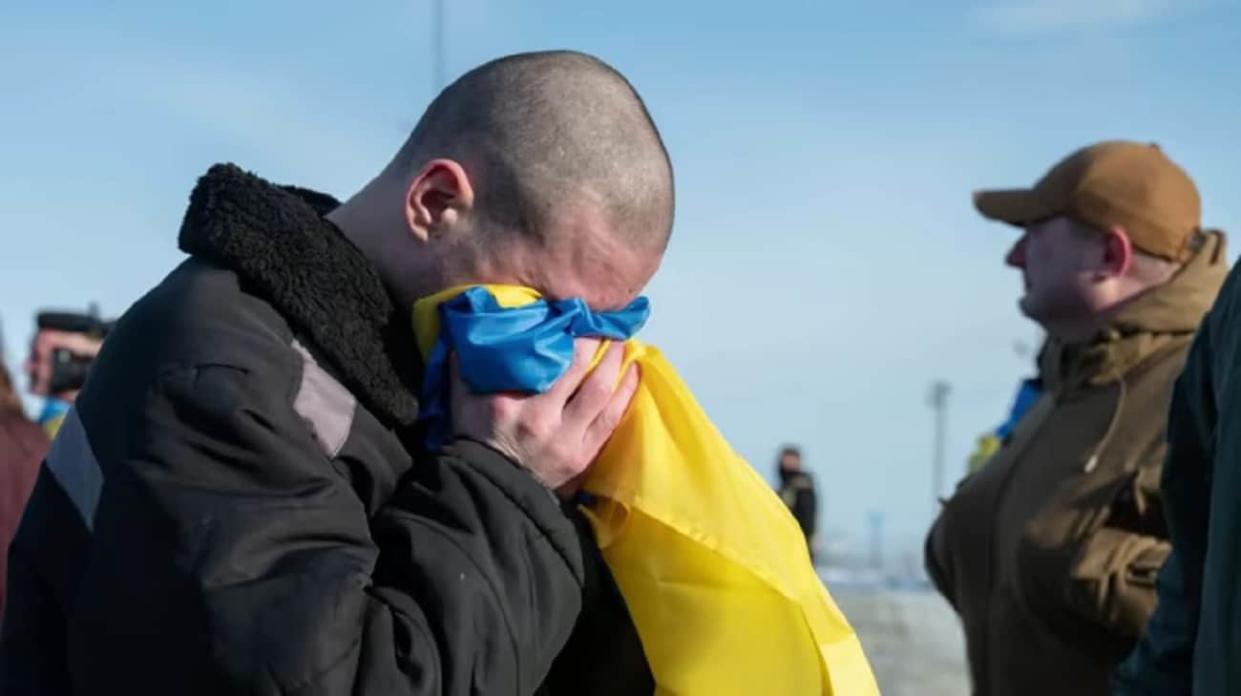Russia manipulates issue of prisoner swaps to undermine situation in Ukraine – ISW

Experts at the Institute for the Study of War (ISW) have stressed that Russia is trying to manipulate the issue of prisoner of war swaps and use it as another tool to destabilise the situation in Ukraine.
Source: ISW
Details: Analysts noted that Russia had accused Ukraine of the recent several-month suspension of the prisoner-of-war swaps amid reports of widespread abuses by Russia against Ukrainian prisoners of war.
Kremlin-appointed Human Rights Commissioner Tatyana Moskalkova accused Ukraine of making "far-fetched demands" that led to the pause in prisoner swaps over the past few months and said Russia was doing everything possible to maintain a dialogue with the Ukrainian government and the International Committee of the Red Cross.
Petro Yatsenko, a representative of the Ukrainian Coordination Headquarters for the Treatment of Prisoners of War, noted in November 2023 that Russia had previously suspended prisoner swaps in the summer of 2023 for an unspecified reason.
The last prisoner swap between Russia and Ukraine took place on 8 February 2024 with the assistance of the United Arab Emirates.
The experts noted that Ukraine was forced to open a third camp for Russian prisoners of war partly because of "the actual blocking of exchanges by the Russian side" and partly because of the growing number of Russian deserters who became prisoners of war.
It was also stated in the report that in recent months, following the last prisoner swap, Russia had committed a number of apparent abuses against Ukrainian prisoners of war, including executions and the use of prisoners of war as human shields on the battlefield, as well as the alleged operation of a black market for the sale of Ukrainian prisoners of war to Russian paramilitary groups.
Russia is also using a battalion consisting mainly of Ukrainian prisoners of war to fight in Ukraine, which is another blatant violation of the Geneva Convention.
Therefore, the analysts concluded that Moskalkova's accusation that Ukraine was the party responsible for stopping prisoner swaps might be an attempt to shift the blame onto Ukraine and hide the many abuses committed by Russia against Ukrainian prisoners of war, which could lead to discontent in Ukrainian society and distract attention from Western support for Ukraine.
It was suggested that the Kremlin was using the prisoner of war swap policy as another technique to undermine Ukraine's decision-making process.
To quote the ISW’s Key Takeaways on 29 May:
Mykhailo Podoliak, advisor to the Head of the Ukrainian President's Office, stated that US-provided military aid has started arriving on the front line but that it will take "weeks" for the gradual increase in US-provided military aid to reach "critical volumes.
Sweden announced its 16th and largest military aid package to Ukraine, worth 13.3 billion kronor (about US$1.25 billion), on 29 May.
Western officials are increasingly suggesting that they support Ukraine's right to use Western-provided weapons to strike military targets in Russia.
Russia blamed Ukraine for the recent several-month-long suspension of prisoner of war (POW) exchanges over the backdrop of reports of pervasive Russian abuses against Ukrainian POWs.
Russian leader Vladimir Putin continues his efforts to prepare the Russian population for a protracted war effort.
Belarus suspended its participation in the Cold War-era Conventional Armed Forces (CFE) in Europe Treaty on May 28.
Russian forces recently advanced north and northeast of Kharkiv City, near Kreminna, Chasiv Yar, and Avdiivka.
Russia continues efforts to expand social benefits for Russian military personnel, veterans of the war in Ukraine, and their families.
Support UP or become our patron!

